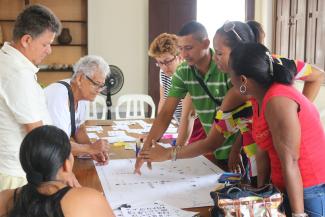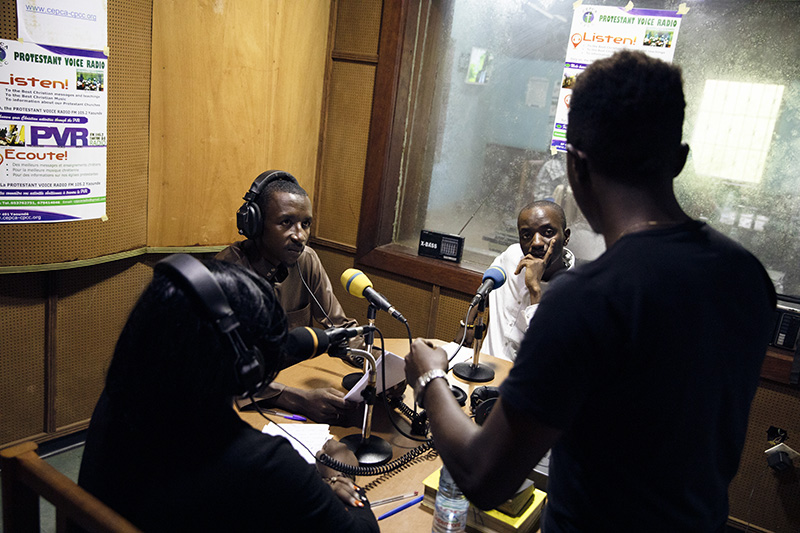CPS
The Civil Peace Service turns 20

The CPS is run by a consortium of nine German peace and development agencies. They cooperate with local partner organisations to carry out programmes. Through the CPS, Germany assumes responsibility for de-escalating conflict and laying the foundation for lasting peace in countries all over the world. This year, Germany’s Federal Ministry for Economic Cooperation and Development (BMZ) is providing € 55 million to fund the CPS.
CPS experts support local partner organisations in their efforts to build and maintain peace. They are specialised in civil conflict management and bring an outsider’s perspective to conflict dynamics abroad. They cooperate with local civil-society organisations which are rooted in their respective societies and often have access to all parties involved in a conflict.
The big challenge is to prevent violence in the first place. How can people live together peacefully who have shot at each other in the past? Depending on the specific situation, very different approaches may be required. CPS experts frequently convey methods and concepts for peaceful conflict resolution. They open up spaces for dialogue and peaceful conflict resolution, convening antagonist parties for negotiations, empowering disadvantaged groups and teaching journalists how to do conflict sensitive and de-escalating reporting. The projects are long term, facilitating mutual trust and building resilient relationships. Over 600 CPS projects with a variety of goals have been implemented since 1999.
As the experience of the past 20 years shows, local-level action can often advance peace throughout an entire nation. In Colombia, for instance, the CPS helped previously neglected indigenous groups to make a difference in peace negotiations. In northern Macedonia, the CPS-supported organisation LOJA managed to integrate interethnic youth work in all teachers-in-training. And in Guinea, a national network of peace committees was established. Instead of fighting each other to the death, young people now sit at the negotiating table with security forces.
Martina Rieken is public relations officer for the Civil Peace Service consortium.
Link
Under the slogan “Peace can”, the CPS is introducing 20 projects during its anniversary year:
https://www.ziviler-friedensdienst.org/20JahreZFD








